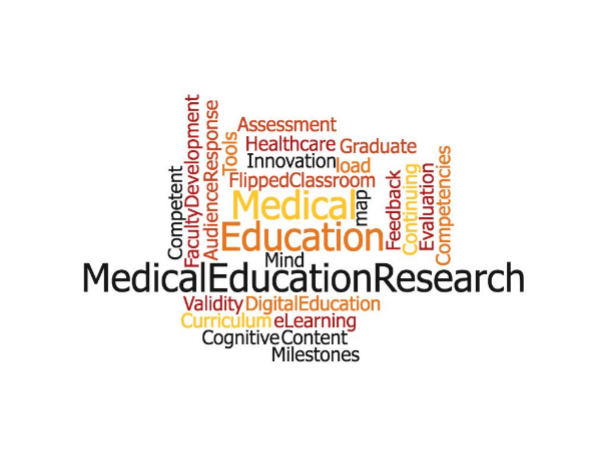Research plays a pivotal role in MBBS (Bachelor of Medicine, Bachelor of Surgery) education. Its integration within medical curricula is seen as essential for the development of competent, inquisitive, and evidence-based practitioners. Research involvement, it can be argued, should not only be encouraged but also structured within the MBBS program to ensure the production of doctors who are well-versed in the principles of scientific inquiry and application.
Enhancing Analytical Skills
Through research activities, students’ analytical skills are honed. Critical thinking is promoted as students learn to design studies, analyze data, and interpret results. The methodologies of research teach students to approach problems systematically and make decisions based on evidence rather than assumptions. This analytical skill set is crucial for clinical practice, where diagnosis and treatment plans need to be grounded in robust evidence.
Encouraging Lifelong Learning
Engagement in research fosters a culture of lifelong learning among medical students. It is instilled that the field of medicine is ever-evolving, with continuous advancements and discoveries. Students are encouraged to keep abreast of the latest research findings and incorporate new knowledge into their practice. This habit of continuous learning and adaptation is invaluable in maintaining the relevance and efficacy of their clinical skills throughout their careers.
Developing Problem-Solving Abilities
The problem-solving abilities of students are significantly enhanced through research. They are taught to identify gaps in current medical knowledge, formulate relevant research questions, and seek answers through systematic investigation. This process not only deepens their understanding of specific medical issues but also equips them with the skills needed to tackle complex clinical problems. Problem-solving, therefore, becomes an ingrained part of their professional behavior.
Promoting Evidence-Based Practice
One of the primary outcomes of integrating research into MBBS education is the promotion of evidence-based practice. Medical students are trained to base their clinical decisions on the best available evidence, derived from rigorous research. This approach is essential for ensuring high standards of patient care and improving healthcare outcomes. The ability to critically appraise research and apply findings appropriately is emphasized throughout their education.
Enhancing Understanding of Medical Literature
A thorough understanding of medical literature is cultivated through research activities. Students learn to navigate scientific journals, understand study designs, and evaluate the validity and applicability of research findings. This skill is crucial for keeping up with the latest developments in medicine and integrating new knowledge into clinical practice. The ability to critically evaluate medical literature ensures that doctors remain informed and provide care based on the most current evidence.
Encouraging Interdisciplinary Collaboration
Research in medical education often involves interdisciplinary collaboration. Students are exposed to working with professionals from various fields such as biostatistics, epidemiology, and public health. This collaborative environment enhances their understanding of how different disciplines contribute to healthcare and promotes a holistic approach to patient care. Interdisciplinary teamwork is fostered, which is essential for the complex nature of modern medical practice.
Contributing to Personal and Professional Development
Engagement in research significantly contributes to the personal and professional development of medical students. The process of conducting research instills a sense of responsibility, perseverance, and attention to detail. Students learn to manage time effectively, work under pressure, and meet deadlines. These attributes are invaluable in their future medical careers. Furthermore, the publication of research findings and presentations at conferences provide opportunities for professional recognition and networking.
Bridging the Gap Between Theory and Practice
The gap between theoretical knowledge and practical application is bridged through research activities. Students are provided with opportunities to apply what they have learned in the classroom to real-world scenarios. This experiential learning is crucial for reinforcing theoretical concepts and understanding their practical implications. Research projects often involve clinical settings, which further enhance the students’ hands-on experience and understanding of patient care.
Addressing Public Health Issues
Through research, students are exposed to public health issues and the broader determinants of health. The investigation of epidemiological trends, health disparities, and preventive measures is encouraged. This exposure is essential for cultivating a public health perspective among future doctors, who will be better equipped to address health issues at both individual and community levels. The importance of preventive medicine and health promotion is thus underscored.
Facilitating Innovation and Advancement in Medicine
Research is a driving force behind innovation and advancement in medicine. By involving medical students in research, a culture of curiosity and innovation is fostered. Students are encouraged to explore new ideas, test novel hypotheses, and contribute to the advancement of medical knowledge. This innovative mindset is crucial for the continuous improvement of healthcare practices and the development of new treatments and technologies.
Integration into Curriculum
For the benefits of research to be fully realized, its integration into the MBBS curriculum must be thoughtfully planned and executed. Structured research modules, mentorship programs, and dedicated time for research activities should be included. Collaboration with research institutions and access to necessary resources are also essential. Such integration ensures that all students, regardless of their initial interest in research, gain exposure and develop the skills necessary for evidence-based practice.
Overcoming Challenges
While the benefits of integrating research into MBBS education are clear, challenges must be addressed. The workload of medical students is already heavy, and adding research activities can be daunting. Adequate support, including time management training and mentorship, is crucial. Additionally, the availability of funding and resources for research projects can be a limiting factor. Institutions must ensure that students have access to necessary support to pursue their research interests effectively.
Conclusion
In conclusion, the role of research in MBBS education is multifaceted and integral to the development of competent and innovative medical practitioners. The enhancement of analytical skills, promotion of evidence-based practice, and fostering of lifelong learning are just a few of the numerous benefits. By effectively integrating research into the curriculum, medical schools can ensure that their graduates are well-equipped to contribute to the advancement of medicine and provide high-quality patient care.










